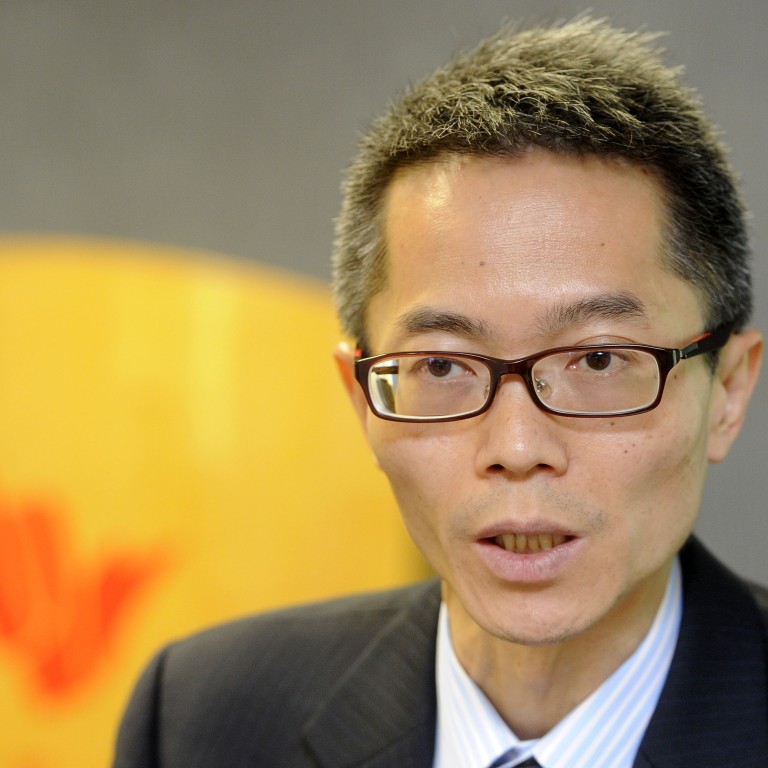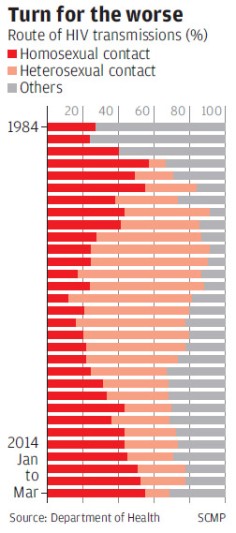
Hong Kong sees peak in new HIV cases in year's first quarter
Highest proportion of reported cases in 25 years, says health department
The number of new HIV cases in Hong Kong has reached a new quarterly high, the Department of Health reported yesterday.
The department recorded 154 new cases in January to March, beating the previous high of 153 in last year's third quarter.
In the first three months of this year, 84 cases - or 55 per cent - were classed as MSM, or "men who have sex with men". This was the second-highest quarterly figure since the first HIV case was diagnosed in 1984.

Wong said the MSM community needed a change in attitude towards protected sex. A department survey last year found the rate of condom use was low in the MSM group, at about 70 per cent compared to more than 90 per cent among female sex workers, another high-risk group.
Of the other new cases, 22 contracted the virus through heterosexual contact and one through drug injection. The causes of the other 47 are as yet unknown.
The proportion of MSM cases among all HIV infections in the first quarter of this year - 55 per cent - was the highest since 1989, when the same percentage was recorded. However, there were only 38 HIV cases that year, compared to 559 cases last year.
The prevalence of HIV in the MSM community is around 4 per cent, according to a government survey in 2011.
Though the number of new HIV cases has increased, the number of Aids cases has been stable. This showed that with effective treatment, a lower proportion of those with HIV had progressed to Aids, Wong said.
Wong said that as well as more transmissions, the rise in infection could be a result of more people being tested.
Aids Concern programme director Mandy Cheung Hiu-wah said some people with HIV were reluctant to seek help, unaware that treatment was available that could allow them to lead normal lives.
She said counselling services were important in encouraging patients to seek treatment and lower their risk of spreading the infection.
